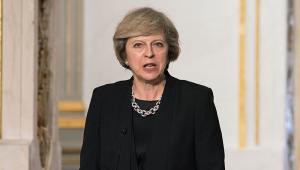By Nick Mann | 29 March 2012
The UK government should drop its commitment to spend 0.7% of gross national income on aid from 2013, peers said today.
In a report, The economic impact and effectiveness of development aid, the House of Lords economic affairs select committee said meeting the goal – which would equate to an estimated £12.6bn in 2014 – would wrongly prioritise the amount spent rather than the results achieved.
It would also make achieving the target more important than the effectiveness of the aid itself, the peers said, as well as risk reducing the quality, value for money and accountability of the programme.
In particular, the committee said it was opposed to the government’s plans to legislate to make the 0.7% target legally binding. Taking this step ‘would deprive future governments of the flexibility to respond to changing circumstances at home and abroad’, the peers said.
The goal was adopted by the UK and some other donor nations in 1970, but few have reached it. In 2010, the UK spent 0.56% of its GNI on aid. More than 90% of this was development aid – the focus of the report published today.
Lord MacGregor of Pulham Market, chair of the committee, said: ‘We were unanimous in our view that legislation for a 0.7% target for overall aid spending is inappropriate, and that the government should reconsider the target itself.
‘We believe that development aid should be judged by the criteria of effectiveness and value for money, not by whether a specific arbitrary spending target is reached.’
But UK International Development Secretary Andrew Mitchell said: ‘The British government makes no apologies for sticking to its commitments to the world's poorest people.
‘Spending less than 1% of our national income on aid – an internationally agreed target – will create a safer and more prosperous world for the UK. And it will get 11 million children into school, vaccinate 55 million children against preventable diseases and stop 250,000 newborn babies dying needlessly. Going back on this promise would cost lives.’
Max Lawson, head of policy at Oxfam, added: ‘The committee is guilty of presenting a false choice between delivering high quality aid and increasing its quantity – the government can and should do both.’
The committee did welcome the UK government’s decision to run down its bilateral development aid programmes in 16 countries, including China and Russia, and to focus on 27 countries. But, it should ‘urgently prepare an early exit strategy’ from its Indian programme, which risked providing a ‘perverse incentive’ for the Indian government to spend less of its own money on poverty reduction.
Less funding should also be provided to organisations including the World Bank and United Nations Development Programme because of concerns over the quality of aid delivered by those bodies, the report said.
And the UK Department for International Development should do more to tackle corruption relating to its aid programme. The DFID detected only £1.2m of fraud in its £7.7bn budget in 2010/11 – a figure the committee said was ‘paltry and implausibly low’.












